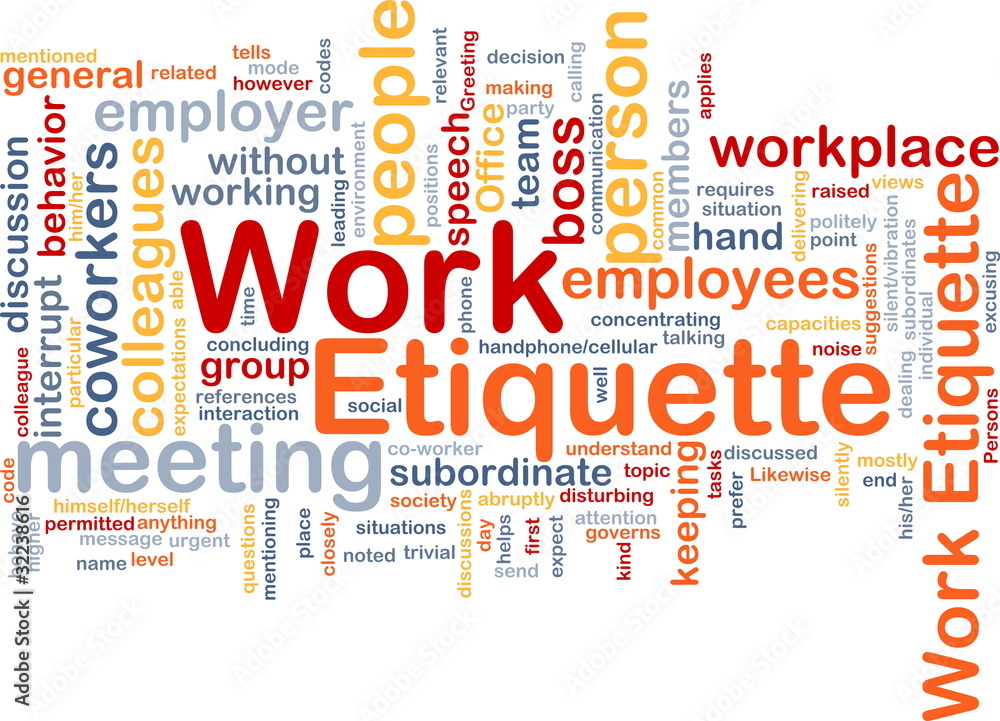
By James Pak
The author is head counselor of LA Career Coaching.
[The second of two-part column]
In my last column, I referenced a Wall Street Journal article that discussed the challenges recent college graduates have been facing when adjusting to working in corporate offices. A key reason for these challenges is that many graduates had their college and internship experiences online because of the Covid-19 pandemic, causing them to miss vital ‘soft skills’ training. I then shared in Part 1 the first nine of 17 office etiquette tips beneficial for students and new graduates transitioning into professional roles. Below are the remaining of the 17 office etiquette tips:
Part 1: 17 office etiquette tips for young professionals
10. Use Technology Respectfully: When you are in a meeting or any work-related situation, frequently checking your phone can convey disinterest or disrespect. Furthermore, it can distract others and disrupt the flow of the meeting. Ensuring devices are on silent or mute shows that you value the time and attention of those around you.
11. Respect Others’ Ideas: Everyone comes from diverse backgrounds and experiences that influence their perspectives. By valuing and respecting these different ideas, you create a positive and collaborative workplace. It’s okay to have differing viewpoints, but the way you communicate those differences should be constructive and not dismissive.
12. Avoid Interrupting: Cutting someone off mid-sentence can come off as rude or that you don’t value what they’re saying. By letting others complete their thoughts, you promote mutual respect and effective communication. It also ensures you understand their viewpoint entirely before giving your input.
13. Handle Conflict Professionally: Disagreements are natural in any workplace. However, how you manage those disagreements defines the professionalism of an environment. Addressing conflicts privately and without hostility ensures that issues are resolved without disrupting the team or creating a hostile environment.
14. Mind Your Body Language: Communication is not just verbal. Non-verbal cues like posture, facial expressions, and gestures can sometimes communicate more than words. By being aware of your body language, you ensure your intended message isn’t distorted or misinterpreted. For instance, crossed arms might signal defensiveness, even if that wasn’t your intent.
15. Maintain Work-Life Boundaries: While it’s natural to want to share aspects of your personal life with colleagues, it’s essential to maintain professional boundaries. This protects both your personal privacy and the professionalism of the workplace. Similarly, keep work discussions within the office and respect the privacy of your colleagues outside of it.
16. Know When to Use CC and BCC in Emails: The ‘CC’ (carbon copy) and ‘BCC’ (blind carbon copy) functions in emails can be useful, but misuse can lead to information overload or confidentiality issues. Use ‘CC’ wisely to keep relevant people in the loop without bombarding everyone with information. ‘BCC’ should be used to protect the privacy of recipients, especially when sending to a large group.
17. Learn the Company Culture: Every company has its norms, values, and unwritten rules that define how things are done. Understanding and adapting to this culture helps you work more effectively within the team and ensures smoother interactions. This might involve nuances in communication styles, dress code, or even how meetings are conducted.


![Son Heung-min to LAFC? Tottenham Star Nears MLS Move Tottenham Hotspur and Korea national team captain Son Heung-min is pictured on March 20. [YONHAP]](https://www.koreadailyus.com/wp-content/uploads/2025/05/0516-SonHeungmin-100x70.jpg)

![‘Squid Game’ S3 Breaks Netflix Record Despite Mixed Reviews A still from the third and final season of Netflix's series ″Squid Game″ (2021-2025) [NETFLIX]](https://www.koreadailyus.com/wp-content/uploads/2025/06/0630-SquidGame-100x70.jpg)
